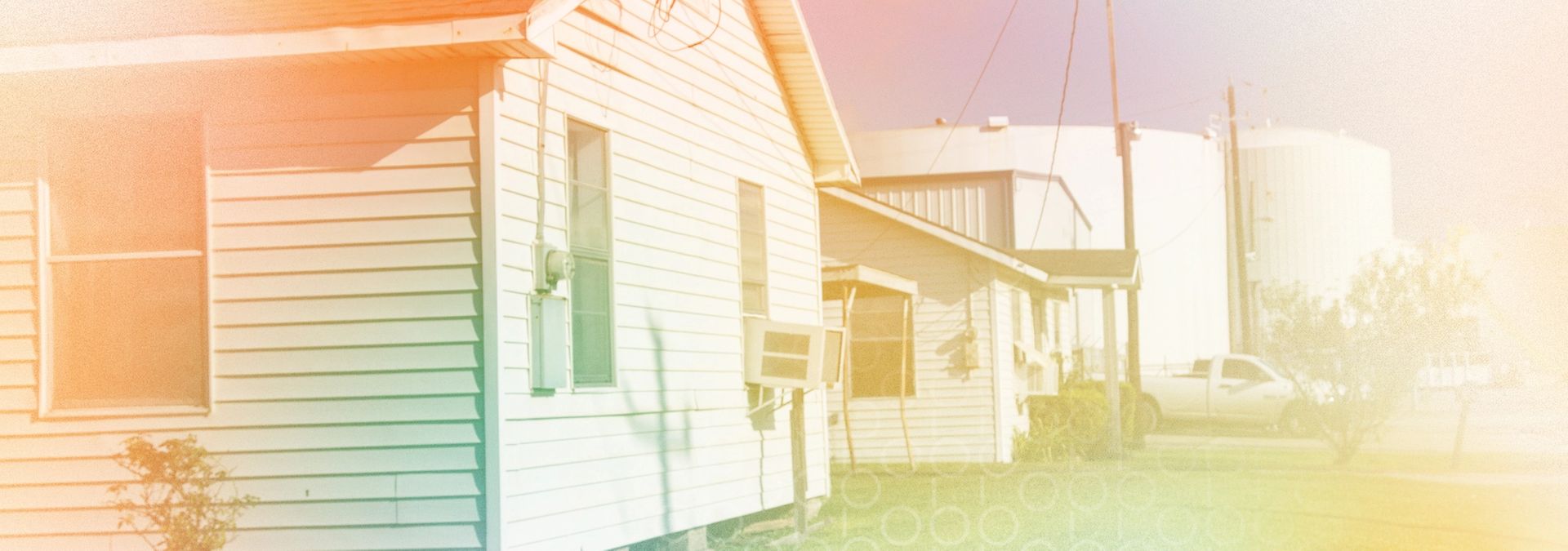
Houstonians don't have to live with pollution
Houston's communities of color and lower wealth have often been forced to live in harm's way. Photo: Julie Demansky.
It was the smell. I don’t know how to describe it, but it smelled like rotten eggs.
In seventh grade, I started going to soccer practice after school in a park next to a chemical plant in Pasadena. We went to practice every day, and there was the same smell every day.
When we were running and doing our other exercises, we started feeling lightheaded. It kept bothering us, but we didn’t have anywhere else to practice. I didn’t know then that what was happening every day at the plant could have been hurting our health. Two of my teammates had asthma, and my cousin had asthma, too, but air pollution didn’t really concern our community. We didn’t know the dangers. Because we were a poor community, we accepted the fact that we had to stay there, and whatever happened, happened.
We weren’t having any other issues. The chemicals smelled bad, but we didn’t think they were affecting us.
Then, during my senior year, there were the fires at the ITC and KMCO plants. During the ITC fire, my school had to close for three days. My family had to shelter-in-place, so we turned off the air-conditioner and waited for the news.
The smoke-filled skies showed how important it was for all of us in our community to start talking about what was in our air, because these incidents aren’t just affecting our environment, but our health, too.
I turned to community service and school clubs, and I joined Environmental Defense Fund’s Youth Council program with students at two other high schools near the Houston Ship Channel. We wanted to learn about environmental issues and become advocates for change.
First, we held town halls to raise awareness about the pollutants in our communities and how our air quality could be improved. It was the first time I could remember all of us coming together to talk about these issues like that.
Then, earlier this summer, I was given the opportunity of going on a trip to Washington, D.C. We visited historic places and toured the Environmental Protection Agency and Congress, even meeting Rep. Sylvia Garcia, to see how environmental policies are made.
One speaker told us that she comes from a Hispanic family. She said her family doesn’t dwell on politics, because they want to avoid conflict. It sounded just like growing up in Pasadena.
But listening to her made me see that there are others out there just like me who want to improve their communities, too. We aren’t doing it on our own.
As I started getting ready this summer to pursue my education in environmental science at Sam Houston State University, there was another chemical fire, this time at the Exxon Mobil plant in Baytown. It was the fourth in four months.
Too often, we think that our actions won’t have any effect, especially when you’re a young person. As the first in my family to go to college, I’m trying to work on speaking out about these issues. But I’m timid, and it’s terrifying, at times. Because we’re so young, some people won’t take us seriously. They’re in power, so they might feel as though they don’t have to take our thoughts into consideration.
But if we start talking, they will start listening. If we start off as something small, we can grow together as a community. We can vote. We can talk with our representatives. We can tell them we want them to take action. We don’t have to accept that whatever happens, happens, in our communities, because we’re all in this together.
Cedillo is a member of the first cohort of the Environmental Defense Fund’s Youth Council program, supported by the Gulf Research Program of the National Academy of Sciences, Engineering and Medicine.
STAY UP TO DATE
The quality of our newsletter is considered satisfactory and poses little or no risk.
SUBSCRIBE

